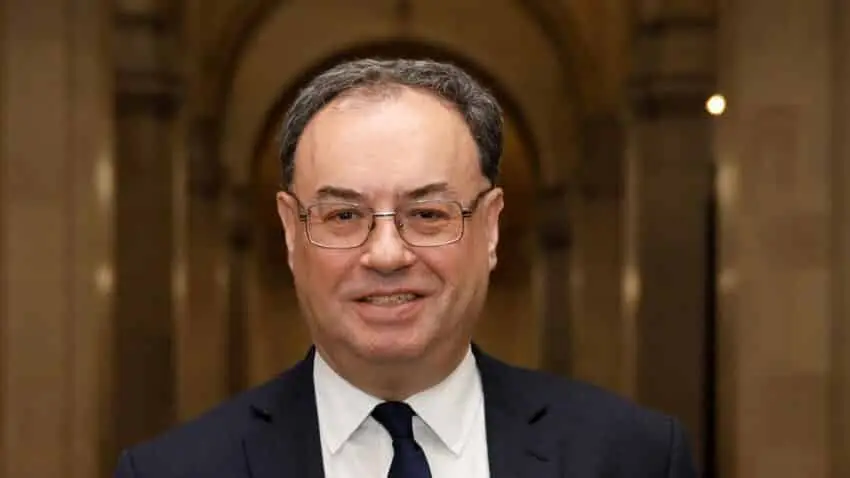The Bank of England is on the brink of reducing interest rates for the first time in over four years, lowering them from a 16-year peak of 5.25 per cent. This anticipated decision, expected to be made by the nine-member Monetary Policy Committee (MPC) at midday on Thursday, could offer much-needed relief amidst the high cost of living. Meanwhile, market sentiment indicates a more than 60 per cent chance of a rate cut, although persistent domestic inflation might compel the MPC to maintain the current rate for the eighth consecutive meeting.
Monetary Policy Decision
The Bank of England is on the verge of reducing interest rates for the first time since 2020, bringing them down from a 16-year high of 5.25 per cent. This decision will be made by the nine-member Monetary Policy Committee (MPC). It comes as a potential relief for homeowners and families struggling with the high cost of living.
Market Sentiment and Predictions
City investors predict a close vote among the MPC members. Governor Andrew Bailey might cast the deciding vote if the committee is split. Market sentiment currently suggests a more than 60 per cent chance of a rate cut. However, persistent domestic inflation could force the MPC to keep the rate the same for the eighth consecutive meeting.
Recent Inflation Trends
In June, services inflation stayed at 5.7 per cent, exceeding the Bank’s forecasts. Wage growth also stayed high at the same rate. Despite these pressures, the headline consumer price index inflation has remained at the Bank’s 2 per cent target for the past two months. This has led to speculations about a possible easing of monetary policy.
Analysts’ Views
Goldman Sachs analysts foresee a 5-4 vote in favour of a rate cut, citing “significant progress on curbing inflationary pressures” in recent economic data. Nomura’s experts agree but describe the decision as “finely balanced.” Some MPC members from the June meeting, who were inclined towards holding rates, indicated they were close to voting for a cut.
MPC Member Speculations
Identifying MPC members likely to support a rate cut has been hard, especially since the Bank of England halted communications during the general election campaign. MPC members usually express their views through speeches, providing insights into their stances.
Speculations suggest that Governor Bailey, new Deputy Governor Clare Lombardelli, and Sarah Breeden might support a rate reduction. Dave Ramsden and Swati Dhingra are also expected to favour a rate cut. On the other hand, Jonathan Haskel, Catherine Mann, Megan Greene, and Huw Pill are likely to favour maintaining the current rate.
Political Implications
A rate cut on Thursday could have political significance, with the Labour government possibly highlighting it as a sign of economic normalisation. Prime Minister Sir Keir Starmer has blamed previous rate hikes on the Conservatives and specifically on Liz Truss’s mini-budget.
Leading up to this decision, Chancellor Rachel Reeves criticised her predecessor Jeremy Hunt for allegedly hiding £21.9 billion of government overspending. Following a Treasury audit, Reeves cancelled several infrastructure projects and the winter fuel allowance for pensioners not receiving benefits. She also admitted that tax increases might be necessary in her upcoming budget on October 30.
Investor Expectations
Financial markets believe that Thursday’s rate cut will not mark the start of a prolonged period of monetary easing. Investors expect the Bank of England to lower the base rate only one or two more times this year. Alongside this, the Bank is expected to revise its UK GDP growth projections upwards in the accompanying economic forecasts.
Impact on Homeowners and Families
A cut in borrowing costs could provide much-needed relief to homeowners and families facing high living expenses. It could help ease some of the financial burdens that have been exacerbated by consistent rate hikes over the past few years.
Communication Challenges
The Bank of England has faced challenges in communicating its monetary policy decisions during the general election campaign. This has made it difficult to gauge the positions of some MPC members on the rate cut decision.
Conclusion
The decision to cut interest rates carries significant economic and political implications. With various factors at play, the upcoming MPC vote is highly anticipated by markets and the public alike.
The Bank of England’s decision on interest rates carries significant economic and political weight. As homeowners and families await relief, the market eagerly anticipates the outcome. The upcoming vote reflects broader economic trends and pressures.

